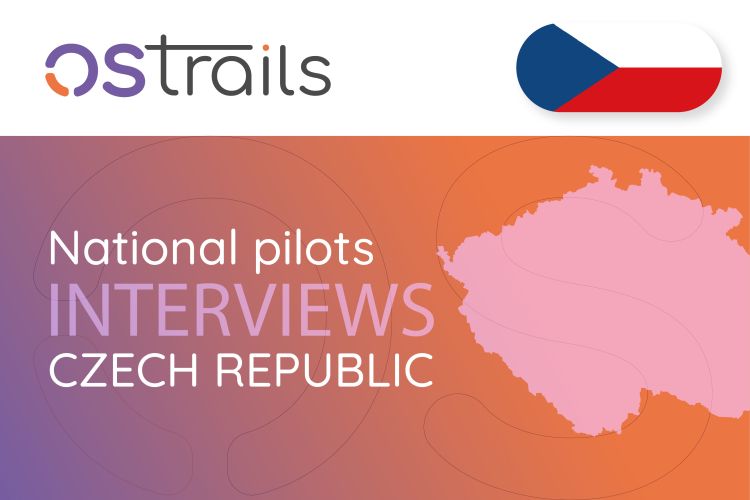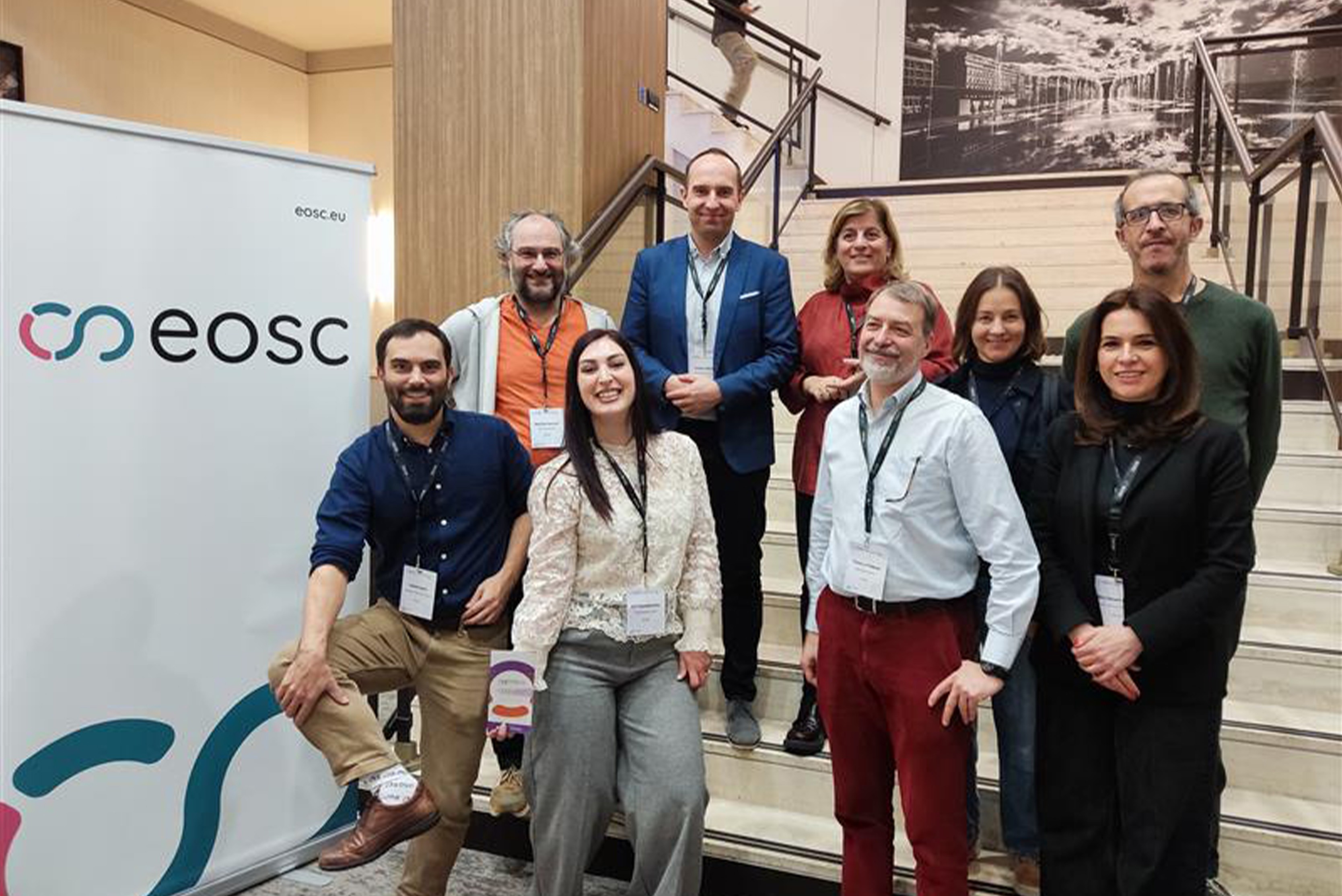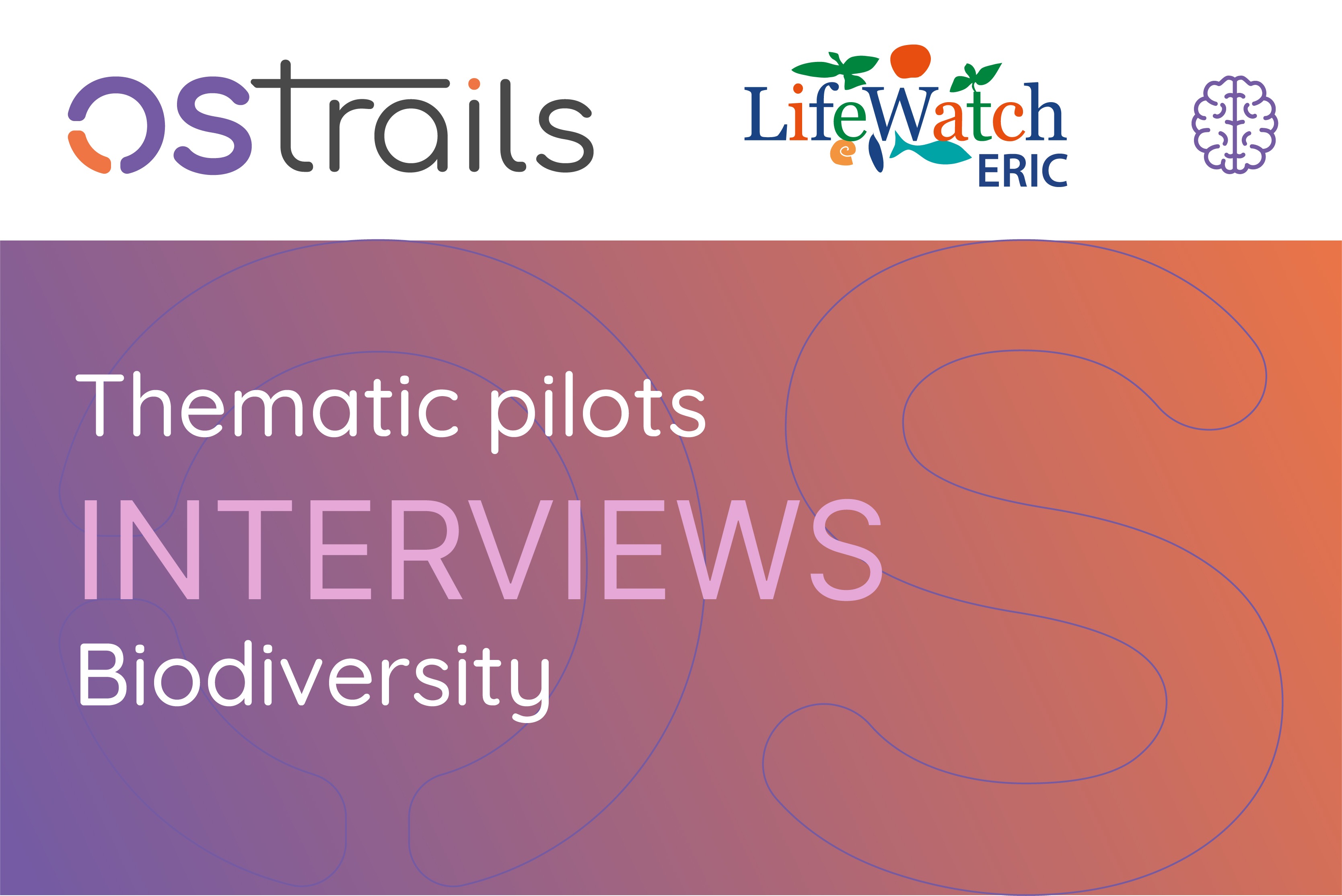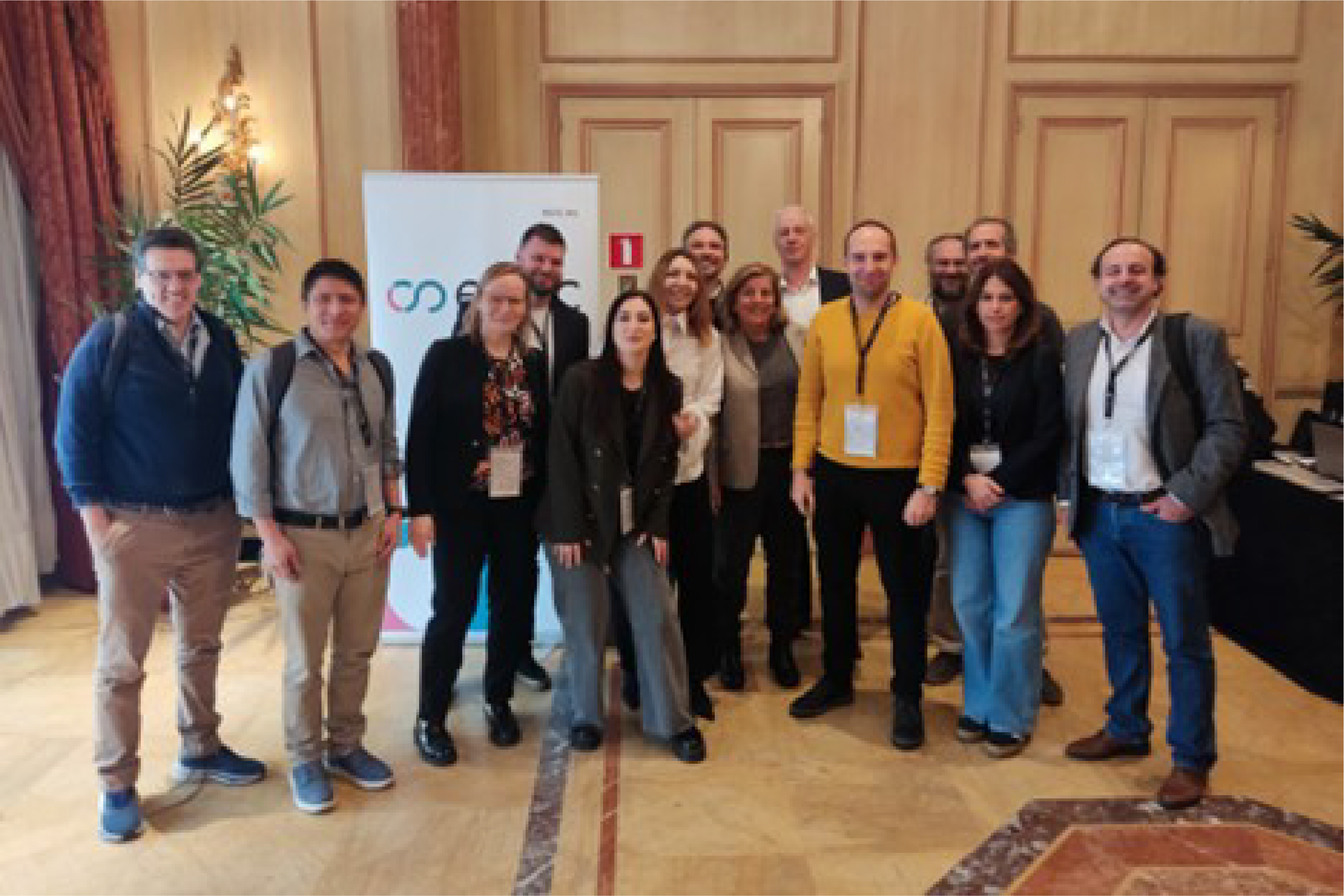National Pilot Interview Czech Republic

Read the National Pilot Interview from The Czech Republic and explore all the progress of OSTrails pilot studies. Check the latest on their national activities and learn how they’re progressing with the integration of open science and research assessment. This month we had the pleasure of discussing with Robert Pergl from the Faculty of Information Technology (FIT) at Czech Technical University in Prague. Enjoy!
 - Robert Pergl
- Robert Pergl
"Our team at the Faculty of Information Technology, Czech Technical University in Prague, has always been passionate about machine-actionability in data stewardship. Recognizing the skyrocketing importance of data management, combined with our expertise in conceptual modelling and software engineering concentrated in our Centre of Conceptual Modelling and Implementation at the Department of Software Engineering, we could not stand apart and felt compelled to advance solutions for FAIR data. Being part of OSTrails represents the pinnacle of our efforts, providing us with the opportunity to collaborate closely with amazing enthusiasts who share our vision. Beyond significant joint technological advancements, it also allows us to impactfully disseminate results, something we could never achieve alone."
-Can you briefly introduce your organisation? How does it/do they contribute to EOSC?
We have been dedicated to FAIR-related initiatives from the outset, contributing to major projects and infrastructures like ELIXIR, GO FAIR, EOSC CZ, and RDA. Our flagship project is the Data Stewardship Wizard (DSW), developed with our ELIXIR partners, which has become one of the major solutions for data management planning. It stands apart from other solutions in that it was designed with machine actionability in mind from day one, allowing efficient knowledge management, extensive automation possibilities, machine-generated documents, and fine-grained integrations with the entire ecosystem of tools, databases, and administrative systems. Our active involvement in the RDA’s machine-actionable DMPs working group has positioned DSW as an early adopter of supporting standards.
The EOSC Secretariat in the Czech Republic has passionate and goal-oriented professionals. We are involved in two major EOSC-rooted projects: OSTrails and “Implementation of EOSC in the Czech Republic,” which includes developing the National Repository Platform (NRP). The NRP offers a highly integrated ecosystem of data management tools, while OSTrails focuses on machine-actionable DMPs, DMP evaluation, and RDM-supporting tools. Together, these projects provide excellent synergies, enhancing the NRP's robustness and integrating OSTrails' advanced components for a broader audience.
-What are you most excited about in OSTrails? What are you looking forward to?
We have been dedicated to FAIR-related initiatives from the outset, contributing to major projects and infrastructures like ELIXIR, GO FAIR, EOSC CZ, and RDA. Our flagship project is the Data Stewardship Wizard (DSW), developed with our ELIXIR partners, which has become one of the major solutions for data management planning. It stands apart from other solutions in that it was designed with machine actionability in mind from day one, allowing efficient knowledge management, extensive automation possibilities, machine-generated documents, and fine-grained integrations with the entire ecosystem of tools, databases, and administrative systems. Our active involvement in the RDA’s machine-actionable DMPs working group has positioned DSW as an early adopter of supporting standards.
The EOSC Secretariat in the Czech Republic has passionate and goal-oriented professionals. We are involved in two major EOSC-rooted projects: OSTrails and “Implementation of EOSC in the Czech Republic,” which includes developing the National Repository Platform (NRP). These two projects offer excellent synergies: the NRP delivers a national highly integrated ecosystem of data management tools starting from data repositories, metadata catalogues, PID infrastructure, high-level user services on top of them together with cross-cutting activities such as security, user experience, user guides, trainings, data stewardship services, and a sustainability roadmap. OSTrails focuses on maDMPs, DMP evaluation, SKGs, and RDM-supporting tools, bringing cutting-edge components to further enhance the NRP along with a broader audience, as the NRP primarily targets researchers. Conversely, NRP will provide a robust, stable technological and organisational foundation, enabling effective operation and integration of OSTrails’ results in the future.
-How is planning, tracking and assessing research realised in your country/scientific domain?
The Czech Republic has a strong, enthusiastic research community supported by infrastructures like ELIXIR CZ and e-INFRA CZ, along with the EOSC CZ secretariat and other organizations, such as the Czech National Library of Technology. Despite comprehensive coverage of hardware, software, tools, training, policies, and security, we still lack integrated, user-friendly solutions. Effective adoption and dissemination require bringing together all stakeholders – researchers, data stewards, institutions, funders, and government. Despite our progress with the DSW, tracking and assessing scientific data at all levels is still a work in progress.
-Can you provide some details on your pilot's main actors, services and priorities? How will your pilot adopt the results of OSTrails?
Currently, we are experiencing an exceptional synergy between the NRP and OSTrails projects. While NRP primarily focuses on researchers, our OSTrails pilots mainly target funders. Our two primary national funders are the Czech Science Foundation (GAČR), which supports basic research, and the Technology Agency of the Czech Republic (TAČR), which supports applied research and experimental development. Like in other countries, both face challenges in adapting to the global shift toward data-oriented research. This shift requires new methods for evaluating project proposals, monitoring, and assessing results, all governed by the FAIR principles. Therefore, our pilots will largely aim to assist them in this transition. We are in close communication with both agencies to set the right goals and plans, ensuring our ambitions align with their capacity to implement advancements at all necessary levels. We have agreed to collaborate on co-defining metrics for DMPs and FAIR assessment governance and compliance. We are confident that, once the OSTrails deliverables are finalized and the NRP infrastructure is fully established, we will be in a position to refine our plan and achieve even greater results together. This confidence stems from what our dear DSW collaborator Dr. Rob Hooft describes as a "stick & carrot" scenario: As pan-European demands for data-oriented research quality rise, convenient solutions will be available to facilitate adoption.
Next, the Czech National Library of Technology (NTK) is our pilot partner. NTK has excelled in implementing European standards within the Czech research landscape and has played a pivotal role in advancing Open Science through its active cooperation with key players in research and innovation. Together, we plan to develop national maDMP templates, incorporating metrics to evaluate how well these Data Management Plans (DMPs) align with the FAIR principles. Given that similar ambitions are one of the goals of the NRP project -albeit with different meansp- it will be very interesting to compare these two approaches, pilot them, and determine the optimal strategy for national requirements. This experience will not only enhance our national framework but also contribute valuable insights to the broader European community. The flexibility in applying FAIR principles is a significant driver of progress in FAIR science, and we look forward to exploring this potential. Additionally, we will be testing OSTrails deliverables at CTU and select universities to further refine and validate our approach.
Last but not least, our pilot also encompasses CESNET, an association of universities of the Czech Republic and the Czech Academy of Sciences that operates and develops the national e-infrastructure for science, research and education. CESNET provides infrastructure, with which we have extensive experience through ELIXIR. In the pilot, it is expected that CESNET will enable the use of this infrastructure and provide technical expertise for deploying services such as the DMP evaluation tool in the national context.
Based on recent local developments, we are also considering one more OSTrails pilot beyond the scope of our original intentions, but I would rather not disclose it now, letting it be a sweet surprise if we succeed.
-Ongoing activities and Next Steps?
In our work with OSTrails, we are heavily involved in WP2, with notable intersections in WP1 and WP3. In WP1, we are playing a key role in developing the Interoperability Framework (IF), with a particular emphasis on the DMP IF component. As leaders in WP2 and dedicated software engineers, we are truly looking forward to the implementation, which aims to enhance interoperability between various tools and produce tangible results beneficial to our users. We are currently fine-tuning our approach to ensure alignment among these tools. In WP3, we are also excited about collaborating on DMP evaluation, which we plan to integrate into DSW.
Additionally, OSTrails is crucial to achieving the NRP project’s ambition of evolving “from the pilot’s checklist to a full cockpit.” By enhancing interoperability among various RDM tools and services, OSTrails will support the robust integration with national services needed for this evolution. This integration will enable researchers to not only create comprehensive, data-intensive research plans in DSW but also to track and assess their progress with increased automation. Enhanced interoperability, as facilitated by OSTrails, is essential for realizing this goal.
The next phase involves collaborating with funders to prepare them for the pilots by developing custom DMP templates (initially non-machine-actionable) and providing training and consultations. These first steps will lay the necessary groundwork and serve as the starting point for the core of the pilots.
Additionally, we plan to establish a “Centre for Advanced Data Stewardship Tools and Methods” at our faculty, highlighting our work and commitment to data management. Needless to say, OSTrails will be one of our gems.
Thank you for the interesting discussion!



